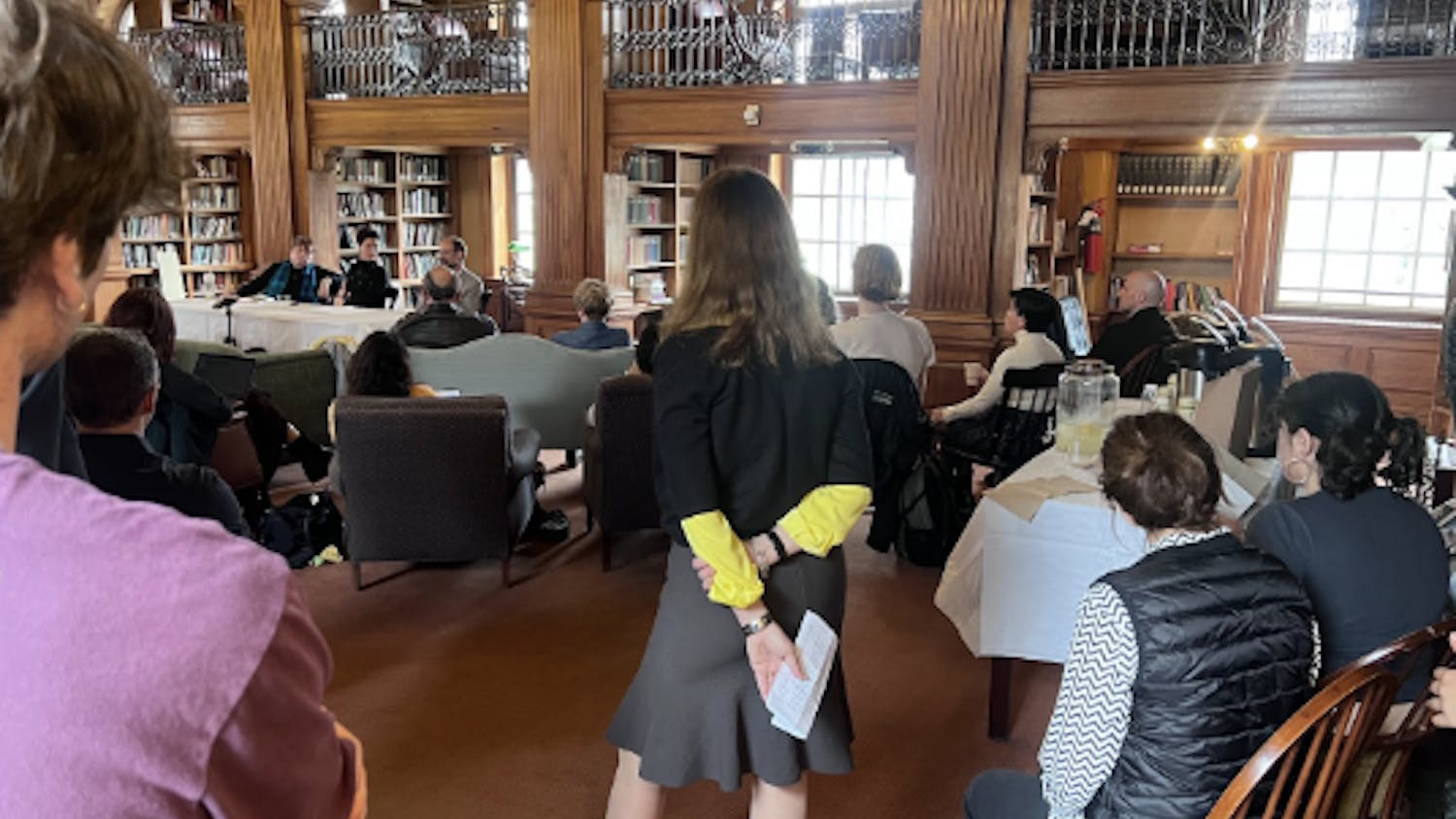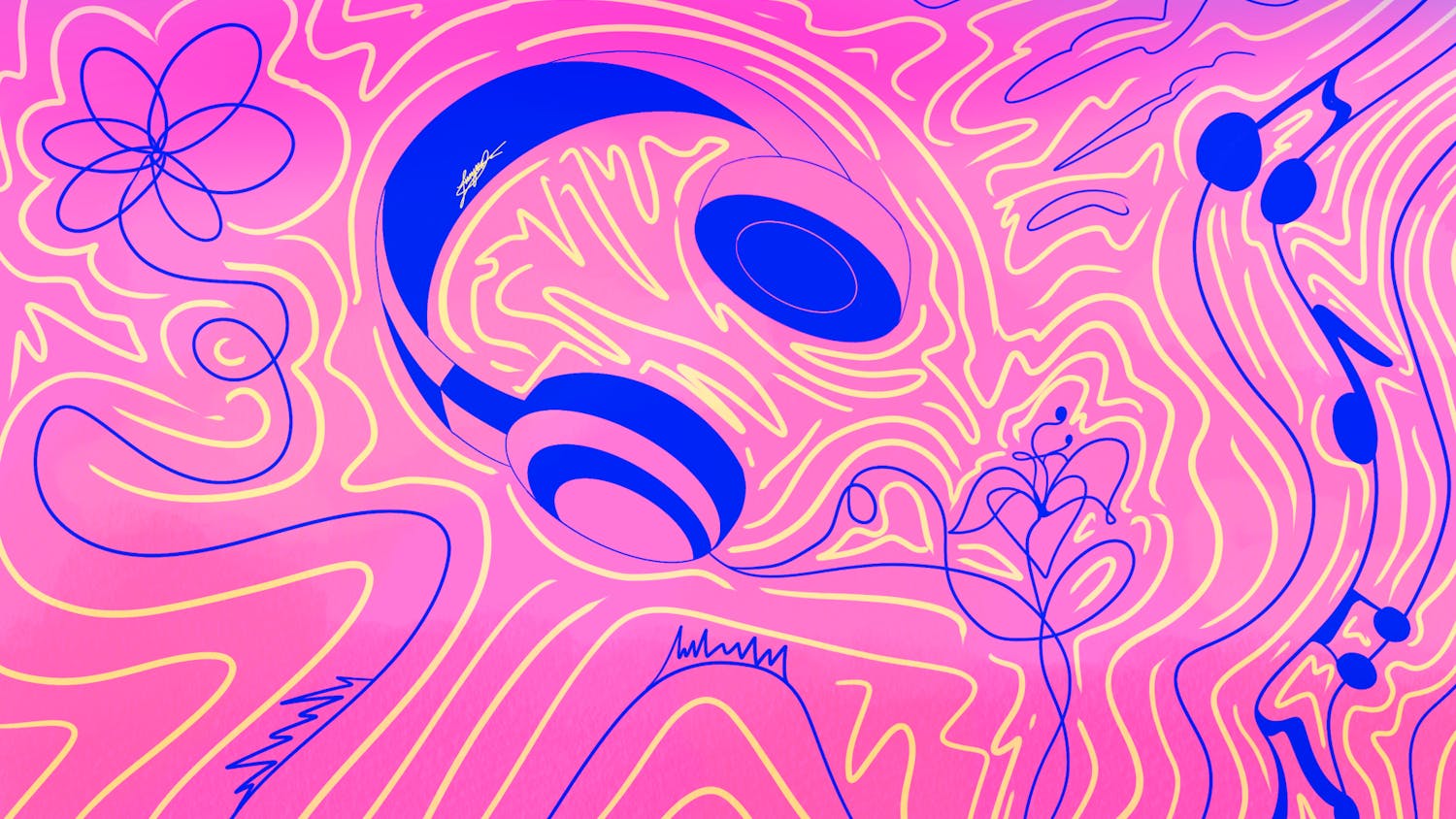In one of my favorite memoirs, “Negroland,” acclaimed critic and professor Margo Jefferson offers an account of her life as a Southern upper middle-class Black woman in the 50s and 60s, reflecting on the confounding nature of racial categorization as a process which has saturated the lives of Black Americans. Jefferson asks a weighty question to the masses: “What manner of man and woman are we?” It is a query that has remained in my head since I finished reading her memoir. With this question, Jefferson addressed the ways in which the otherness imposed on Black Americans necessitated conflict by defining our existence as inherently divergent from the norm of humanity. In Toni Morrison’s newest novel, “The Origin of Others,” this question is asked and expanded to challenge the habit of “othering” altogether — taking history, psychology and literature to task in a way that uncovers the vast offerings of Morrison’s mind.
As a longtime fan of Morrison’s work, I was content to reread her novels whenever I felt nostalgic for her nuanced portrayals of African-American life. This being said, “The Origin of Others” came as a surprise to me. I was not expecting another book from Morrison and certainly wasn’t expecting a work of literary criticism. In a diversion from her most infamous works in fiction, the Pulitzer Prize- and Nobel Prize-winning author demonstrates her reflective and meticulous nature in this most recent work of nonfiction, offering her readership both surprise and consistency.
In “The Origin of Others,” Morrison confronts the concept of the “other” as a social formation created to define oneself and restrict humanity. She hypothesizes that violent forms of otherizing such as racism and sexism are byproducts of a human failure to regard difference as a non-threat to one’s self-identification. Primarily concerned with the ways that literature has been instrumental in “exposing/contemplating the definition of self,” Morrison consults history, science, lived experience and politics to deracinate this tendency. Through intimate analysis of the diaries of slave owners, the narratives of former slaves, her previous fictional works and a variety of American canonical literature, Morrison attempts to locate the origins of Othering. In this way, the book is a byproduct of her reckoning with the ways that language and images work as assistants in the pursuit of the “human project” to “remain human” by “block[ing] the dehumanization and estrangement of others.”
A follow-up on her lectures in the Charles Eliot Norton series at Harvard University, in which Morrison was the fourth woman and the second black lecturer in the 92 years of the series’ existence, “The Origin of Others” manifests within her quest to uncover historical patterns of Othering and to confront the idea that one must “identify an outsider in order to define oneself.” Her lectures sought to uncover the human fear of estrangement that strengthens the incentive to create strict divisions of race, gender, class and sexuality, asserting that “the danger of sympathizing with the stranger is the possibility of becoming a stranger.”
It is a brief but dense read, filled with Morrison’s intimate investigations into the ways that the origins of Othering reveal themselves in the actions of those who are invested in the maintenance of distinctions. In referring to the Atlantic Slave Trade, Morrison swiftly dismantles racial pseudo-science and myth as fabrications necessitated by Othering, explaining that “the necessity of rendering the slave a foreign species appears to be a desperate attempt to confirm one’s own self as normal.” Building upon her explanation, Morrison says of slave owners’ unwavering insistence on establishing racial otherness and inferiority that “the urgency of distinguishing between those who belong to the human race and those who are decidedly non-human is so powerful the spotlight turns away from the object of degradation but on its creator.”
Expanding the scope of her vision, Morrison writes about how modern globalization exacerbates Othering by threatening man-made delineations. She explains that “the spectacle of mass movement draws attention inevitably to the borders, the porous places, the vulnerable points where the concept of home is seen as being menaced by foreigners.” She roots her argument in the assertion that the fear of Otherness calls us to “deny the foreigner in ourselves and … resist to the death the commonness of humanity.” Morrison’s theory of Otherness is a step in the direction of articulating our relationships to each other today in a time in which questions of race, gender, nationality, sexual orientation and other cross-sections of identity are being brought to the surface.
With a foreword by Ta-Nehisi Coates, the acclaimed author of “Between the World and Me,” “The Origin of Others” finds itself in conversation with America and its cultural products, whether they be literature or notions of identity formation and race as they have evolved over time. The book understands narrative fiction as a site for exploration, “a controlled wilderness” in which one can “be and become the Other.”
A continuation of Morrison’s legacy as a writer and publisher committed to “de-fang[ing]” cheap and uninspired renderings of the Other, “The Origin of Others” is an invitation to take part in the mental exercise of imagining new worlds and coming to grips with our current one.



